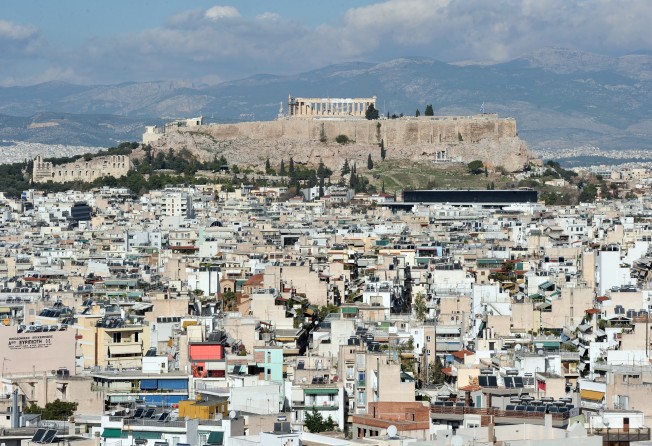Investors blacklist Greece amid crisis
Global buyout houses and property speculators are stalling deals in the country on concerns that bargains can be had at fire-sale prices

Global buyout houses and property speculators are stalling investment raids on Greece, spooked by the possibility that bargains could be snared for fractions of today’s prices.
Two years ago, private equity firms such as Blackstone and KKR were beating a path to Greece, seduced by depressed stock and property values and a European Central Bank promise to do whatever necessary to shore up the euro zone.
However, on Monday, euro zone leaders reached a deal with the country on an 86 billion euro (HKS738 billion) bailout package to keep the beleaguered nation in the single currency. Some of the terms of the deal involve the sale of valuable state assets.
Levels of foreign mergers and acquisitions activity into Greece have fallen to their lowest since 1997, with just US$245.8 million of deals this year, data shows.
KKR’s first Greek deal since at least 2005 has collapsed and a firm Blackstone invested in has lost about 14 per cent in value.
And the longer bellwethers like them lick their wounds over bad Greek bets, the longer mainstream investors such as pension funds will keep the country on the blacklist.
“The macro risks are too great and the likely timeframe for recovery is too long for most of the players in our space to view Greece as being worth the effort at this stage,” said Marc Mogull, a managing partner of real estate private equity firm Benson Elliot Capital Management.
BC Partners’ takeover of pharmaceuticals company Pharmathen last month is the only private equity deal struck in Greece this year, but it is unclear when, and if, parties will be able to complete. The size of the transaction was not disclosed but the company had sales of 180 million euro (HK$1.55 billion) last year.
Although the business generates about 90 per cent of its revenues abroad, a source said BC Partners was in “wait-and-see mode” on the investment.
“Everyone is just treating Greece as a big question mark,” the source said.
The gap between signing and executing deals in Greece has also proven problematic for KKR, which agreed to buy 1.2 billion euro of loans from Greek bank Piraeus at the end of last year.
But following the election of the anti-austerity Syriza government in January, the purchase was cancelled in April, after “taking into consideration the recent developments”, a statement on Piraeus’ website showed.
Blackstone bought a 10 per cent stake in property developer Lamda for 20 million euro in July last year. Lamda had signed an agreement to develop the site of the former Hellenikon airport but Syriza halted the plan, branding the sale of prime coastal property to Lamda as “scandalous”.
Lamda’s stock has fallen 14.3 per cent since Blackstone’s investment but losses could mount when trading on the bourse, shut since June 26, finally resumes.
The stakes are equally high for Oaktree Capital Management, after a series of big-ticket investments in Greece.
The group launched the Ikos brand of luxury resorts in Halkidiki and struck a shipping joint venture with Greek industry veteran Petros Pappas last year.
Greek assets are likely to suffer a sharp depreciation if the former currency drachma is reinstated on a euro zone exit, but when the dust settles and the repricing completes, foreign investors could flock to take advantage.
A depreciation could also make export-oriented firms attractive to investors, since expenses would be in drachma and sales in euros. Property prices would also fall, luring investors to villas and hotels that continue to benefit from Greece’s resilient tourism industry.
“The asset class that continues to attract interest, despite the confusion at the moment, is tourism-related property and hotels,” said Yannis Perrotis, a managing director at CB Richard Ellis Atria.
But with months of tough economic reforms on the horizon and Greek lenders down to their last few days of cash, a major investment drive is a way off yet.
“I don’t think Greece is investable in the near term,” a banker said. “It’s not about investing or not, it’s about what is survivable.”